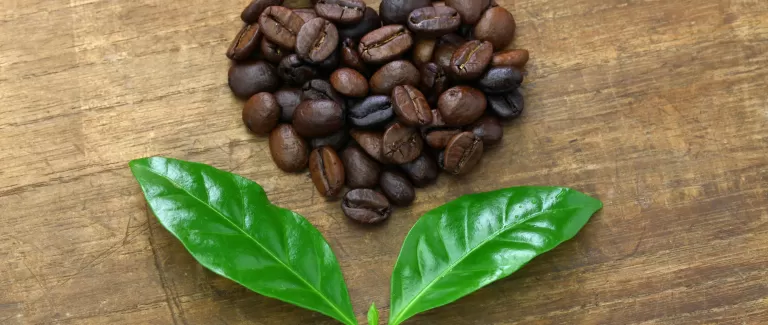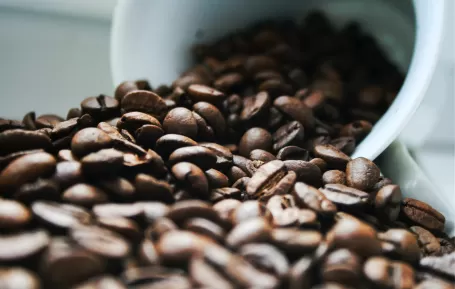1. Invest in a travel mug - and use it
One of the simplest sustainable coffee drinking habits is to always use a reusable mug. Almost half of all hot drinks in the UK are sold in disposable cups, adding up to 2.5 billion coffee cups being thrown away annually. That’s enough disused coffee cups to stretch around the world roughly five and a half times. At first, you’re probably going to forget to put your travel mug in your bag. But remember that most high-street coffee shops offer discount and incentives for bringing your own cup. So try and make it a new habit to not leave the house without your wallet, bag, keys and reusable mug.
2. Buy your coffee in bulk
A lot about being sustainable is actually moving away from convenience. We live in a fast-paced culture where we rarely have time to think ahead or of the bigger picture. And tend to consume things now, and think about the consequences later. Forward planning and bulk buying will actually save you money and also save wasteful packaging. You can order large batches of coffee online, or even visit your local wholesalers or market.
3. Recycle and reuse
It’s a horrendous figure but only 1 in 400 - just 0.25% - of all disposable coffee cups in the UK are recycled. Just think how many of your cups have gone straight to landfill in your lifetime… However, you can make a change today by recycling your used coffee grounds from work at home. Did you know that by sprinkling coffee grounds on flower beds and seedlings they provide acidity and nitrogen for growth? They also make a great exfoliating skin scrub, and the caffeine in the coffee grounds stimulates skin cells for tighter, healthier skin.
4. Ditch the convenience
1 in 5 of us visit a coffee shop every day. If you’re someone who has a daily coffee on the way to work you could be spending about £2.15 a day. That’s £10.75 for a five-day working week… and you can do the math; it soon adds up to a big expense. By brewing a cafetiere to enjoy with your work colleagues not only are you cutting down on waste, but saving some money too. And if you buy your coffee beans from a market stall or specialist shop, why not take along your own plastic container to cut-down on packaging?
5. Check the label
Sustainability starts with the supplier. Get clued-up on who you are buying coffee from and look for certifications such as Fair Trade Certified, Rainforest Alliance Certified, Soil Association Certified. Try not be persuaded by supermarkets deals and offers. If you pay a little more for your coffee, chances are the farmer is being paid well; not just the retailer or roaster. And any extra pennies you are paying for sustainable beans will be balanced out by buying in bulk and avoiding convenience coffee.
Once you have drank your coffee, there are plenty of things you can do with your used coffee grounds.
The best thing you can do is order your coffee from a business that promotes sustainability, such as the Office Coffee Company.



